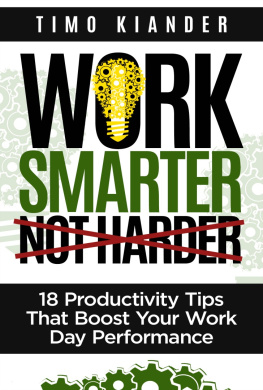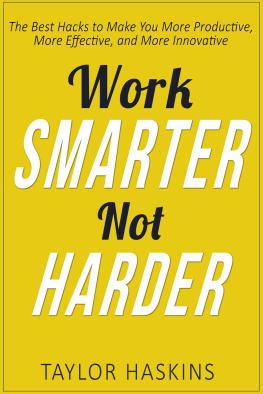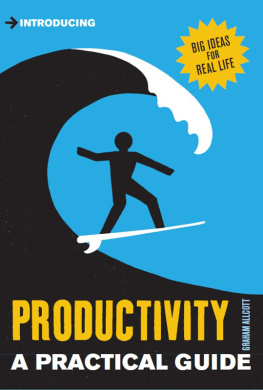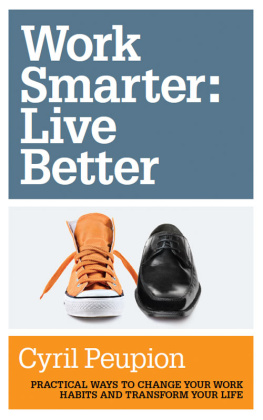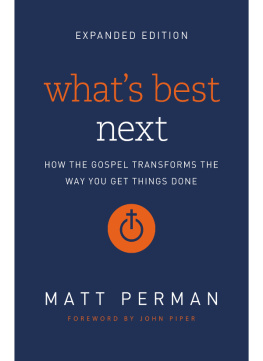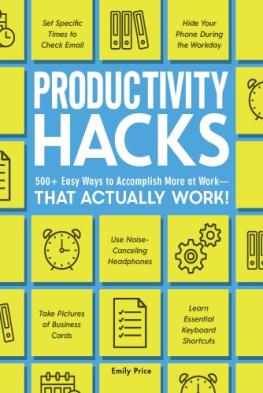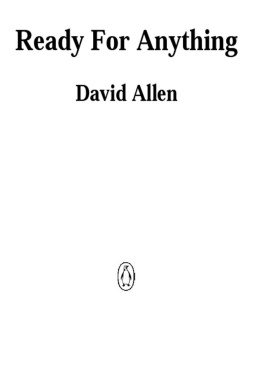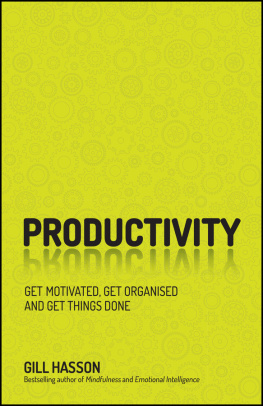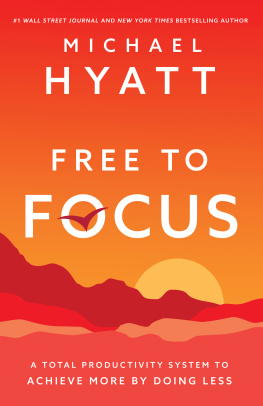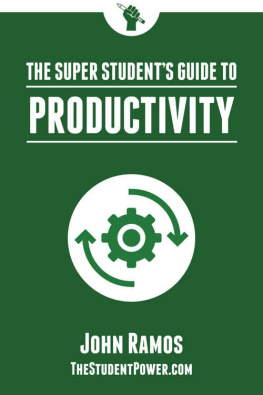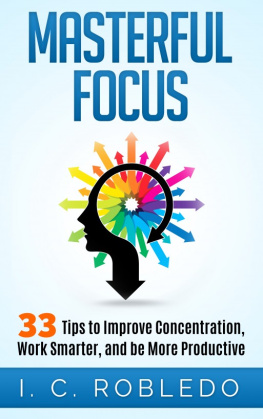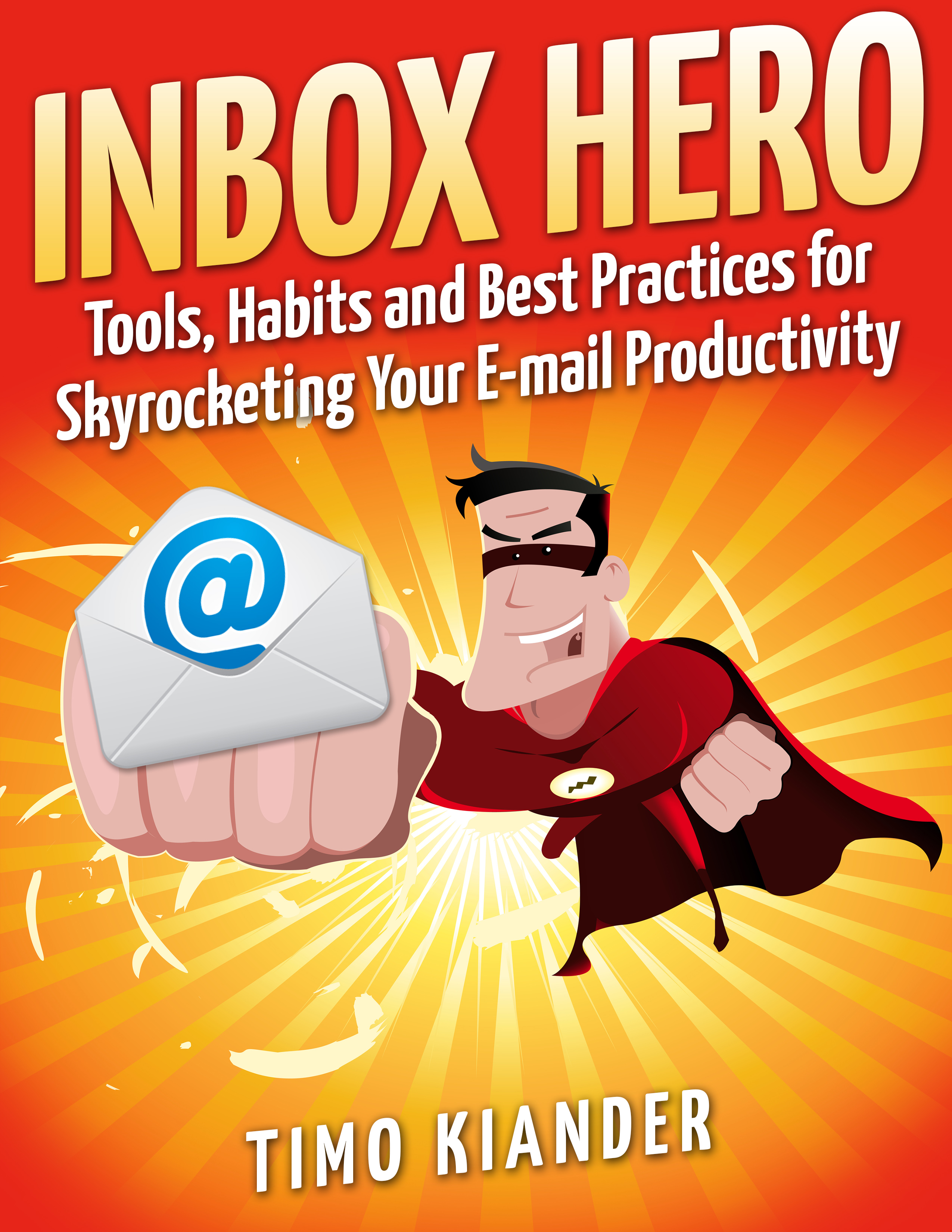Table of Contents
Copyright 2015 by Timo Kiander
All rights reserved.
No part of this book may be reproduced without prior written permission from the author. Reviewers are allowed to quote brief passages in reviews.
Please note that this book is for entertainment purposes only. The views expressed are those of the author alone, and should not be taken as expert instruction or commands. The reader is responsible for his or her own actions.
Free Gift
I have some good news for you! Before you start reading this free book, I have also created another freebie which you may like.
You see, there is one particular tool that you use on daily basis and while it can be a very effective one, it can also be a huge source of distraction and wasted time. Yes, Im talking about e-mail!
This is why I have created a special report for you:
E-mail Productivity Secrets: Tools and Best Practices for Skyrocketing Your E-mail Productivity
It shows some very interesting tools that help you to increase your e-mail productivity, while teaching you best practices and habits that make your e-mail usage more effective. While the tools are mainly geared toward those who use Gmail, the best practices and principles can be applied by anyone, regardless of the e-mail client.
To download this free report, just click the link below.
http://www.productivesuperdad.com/inbox-hero/
How to Read This Book
There is not a particular way to read this book. You can either start from the beginning or pick your chapters randomly.
The more important thing is to actually implement the advice in your everyday life. Only that way will you learn which ideas work for you and which one dont.
Keep this book available, so if you want to refresh your memory or pick up some new tips to improve your work day performance.
Who is This Book For?
This book is geared towards office workers (both at home or in a cubicle). While some tips are perhaps geared more towards those who work in a normal day job, all the advice can be applied to home-based businesses too.
Even if you dont work in those mentioned environments, you can still pick up some interesting tips to improve your everyday performance.
Introduction
I became interested in time management back in 2007, after reading David Allens book, Getting Things Done . By reading his book, a new world opened and I have been a student of time management and personal productivity ever since.
After reading plenty of other productivity material from books and blogs, I finally started applying the strategies I had learned to my personal life. Later I took this knowledge to my work days too. Some of the advice worked fine (checking e-mail less was one of those things), while some other tricks increased my stress levels more than they actually helped me (namely, the 2-minute rule).
Its now 2015 and I have learned a lot more about time management. Not only do I write books about it, but I also train companies about it from time to time.
This book contains the best productivity strategies I have learned over the past few years. No matter if you are working from home or in a cubicle, you can apply these strategies to your work day and take your performance to another level.
This book is a short read, because I value your time. And if you feel that there was a strategy or tip that I should have included here, dont hesitate to send me an e-mail at .
Im always willing to learn more about new ways to keep your productivity levels up.
Work Smarter Not Harder: 18 Productivity Tips That Boost Your Work Day Performance
If there is one word that describes todays work environment, its busy. Consider the image of people running from one meeting to another, unable to focus on their assignments because they are distracted, working overtime to meet their deadlines, and buried by a constant avalanche of e-mail messages.
Unfortunately, in a situation like this, being productive and creative is not even remotely possible. If all you can do is to barely make it through your work day by putting out fires, what happens to your actual work assignments? You guessed it; you dont have time for them.
I hope that with this small book, you can get those productive moments back into your work day. Sure, you will still be doing the busywork, but let the productive and focused work be the number #1 priority from now on.
The Basic Blocks of Productivity
Before you read the actual productivity tips, there is something important worth understanding about personal productivity. And the best way to explain it is by using a metaphor.
Personal productivity is like a building. Now, Im not an expert on building houses and such but I know this: in order for the building to stand tall and last through various weather conditions, it has to have a solid foundation. Otherwise, the building will collapse.
The foundation has to be solid too, when a persons personal productivity is concerned. If the foundation is missing or one part of it fails, personal productivity becomes just a distant dream.
To have a solid foundation for personal productivity, the following blocks must be in place:
Proper mindset
Physical activity
Optimum nutrition
Enough sleep
Lets go briefly through each of them, one-by-one.
Proper mindset
Your mind is a very powerful part of you and through your mind, you form your view of the world. Your mind also plays a very powerful role in your productivity, since it forms attitudes and these attitudes can eventually turn into action or inaction.
There has been plenty written about how the mind works and how to utilize it better, but if there is one book that I would recommend on the subject, it would be Carol Dwecks excellent Mindset .
According to Professor Dweck, you can either have a fixed mindset or a growth mindset. While the people with fixed mindsets let their intelligence and talent define them, the growth mindset oriented people know that with hard work and practice, they can be good at anything.
If you'd like to learn more about the differences between fixed and growth mindsets, take a look at the infographic . It illustrates the core differences between these two in a clear manner.

Text by Carol Dweck, graphic by Nigel Holmes
Physical activity
I remember a time a few years ago when I wasnt as physically active as I am today. All I used to do was drag myself home from work, lie on the couch and watch some television while being half-asleep. But once I changed my habits and started exercising, my life changed for good.
Many aspects of my life changed thanks to exercising regularly. For instance, I noticed that my energy levels were much higher than before. This finding wasnt just my imagination; even a study by University of Stockholm can back it up.
I also noticed that with increased energy I became happier and more creative too. For instance, I was able to come up with solutions to many work-related issues when I was in the middle of my exercise sessions.
Exercising offers some other benefits to your life, too. For instance, you can control your weight .

